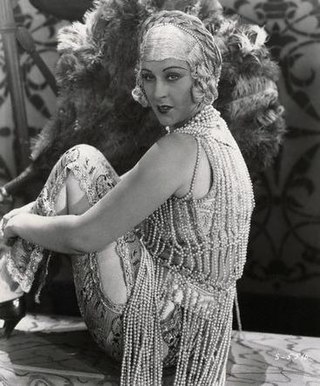
Anita Garvin was an American stage performer and film actress who worked in both the silent and sound eras. Before her retirement in 1942, she reportedly appeared in over 350 shorts and features for various Hollywood studios. Her best known roles are as supporting characters in Hal Roach comedies starring Laurel and Hardy and Charley Chase.

Evelyn Preer, was an African American pioneering screen and stage actress, and jazz and blues singer in Hollywood during the late-1910s through the early 1930s. Preer was known within the Black community as "The First Lady of the Screen."

Ruth Roland was an American stage and film actress and film producer.

Bertram Mortimer Lytell was an American actor in theater and film during the silent film era and early talkies. He starred in romantic, melodrama, and adventure films.

Jack Pearl was an American vaudeville performer and a star of early radio. He was best known for his character Baron Munchausen.

Carl Stockdale also known as Carlton Stockdale was one of the longest-working Hollywood veteran actors, with a career dating from the early 1910s. He also made the difficult transition from silent films to talkies.
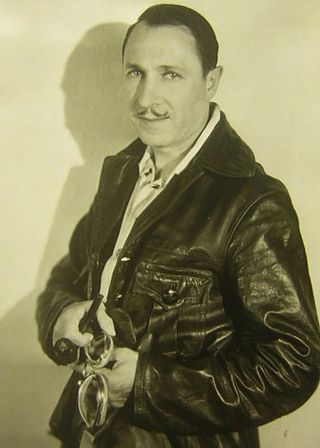
Armand David Kali(s)z was an American stage and film actor of the silent film and early sound period of the 1930s. Prior to that, he was an actor in vaudeville and on the legitimate stage.
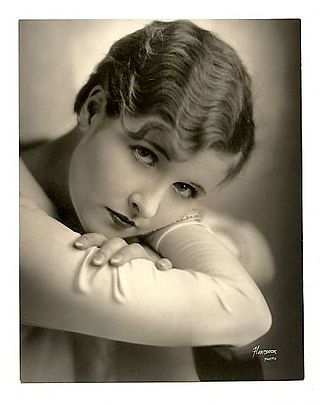
Gladys McConnell was an American film actress and aviator.
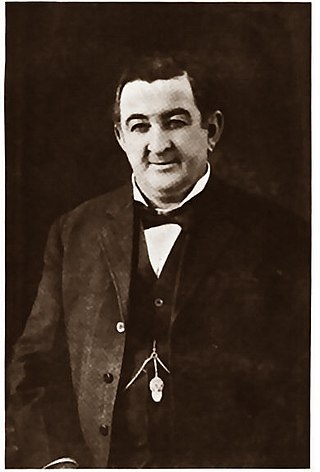
Fred Gamble was an American film actor. He appeared in more than 130 films between 1913 and 1928. He was sometimes billed as Fred Gambold.

Charles Albert Murray, was an American film actor of the silent era.

William Courtright was an American film actor.

Thomas G. Lingham was an American stage performer and then a film actor during both the silent and early sound eras. He appeared in more than 100 motion pictures between 1914 and 1934, often portraying villains, which in the film industry at that time were also called "heavies". During his 20-year screen career, Lingham was cast in productions for Kalem Company, Signal Film Corporation, Pathé, Universal Pictures, Mascot Pictures, Lone Star Film Company, and for other studios in and around Hollywood.

Lucille Hutton (1898–1979) was an American film actress of the silent era. She appeared in 56 films between 1916 and 1931.
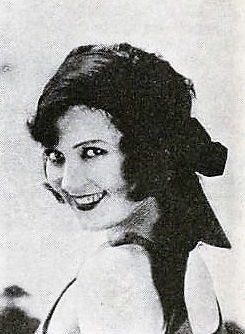
Doris Hill, born Roberta M. Hill, was an American film actress of the 1920s and 1930s.

Robert Carroll Nye was an American film actor. He appeared in more than 50 films between 1925 and 1944. His most memorable role was Frank Kennedy, Scarlett's second husband, in Gone with the Wind.
Murray Kinnell was a British-born American actor, recognized for playing smooth, gentlemanly, although rather shady characters. He began acting on the English stage in 1907, toured in the United States from 1912 through 1914, then returned to England where he served in the British Army during World War I. After the war, he emigrated to the US. He appeared in 71 films between the pre-code era of 1930 and 1937. He later served the Screen Actors Guild in several positions for 16 years.

The Lincoln Theater is a historic theater in South Los Angeles, California. The Moorish Revival building was listed on the National Register of Historic Places in 2009. Sometimes referred to as the "West Coast Apollo", the Lincoln Theater was one of the most significant establishments along the Central Avenue Corridor; this became the cultural and business hub of the African-American community in Los Angeles from the 1920s to the 1950s. For more than 30 years, the Lincoln featured live theater, musical acts, talent shows, vaudeville, and motion pictures, including live performances by the leading African-American performers of the era, including Lionel Hampton, Duke Ellington, the Nat King Cole Trio, and Billie Holiday. The Lincoln Theater was managed and directed by Jules Wolf, grandfather of Rock & Roll Photographer, Linda Wolf, The theater was converted to use as a church in 1962. It continues to be used for religious services.

Cader Edwards Davis was an American actor, producer, and playwright of vaudeville and the silent film era, known as a character actor. Born and raised in the San Francisco Bay Area, he was an ordained Christian minister and first achieved prominence as a sensational orator and lecturer, becoming known as the "poet-preacher" and the "Talmage of the West", before leaving the pulpit for an acting career. He wrote and starred in several original plays and vaudeville sketches, and appeared in over 50 films. In New York he was a president of the National Vaudeville Artists Association and the Green Room Club. In Hollywood he was a founder and president of the Masonic 233 Club. He was married to several actresses, including Adele Blood, who also appeared in some of his productions.
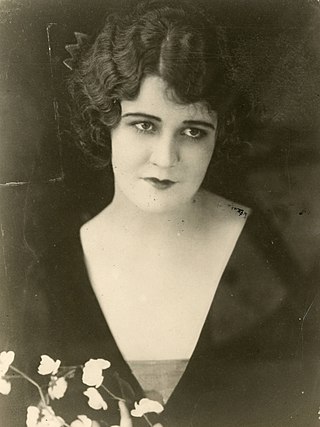
Nina Romano was an American actress in films and on stage.

Lola Lane was an American actress and one of the Lane Sisters with her sisters Leota, Rosemary, and Priscilla Lane. She appeared on Broadway and in films from the 1920s to 1940s.


















